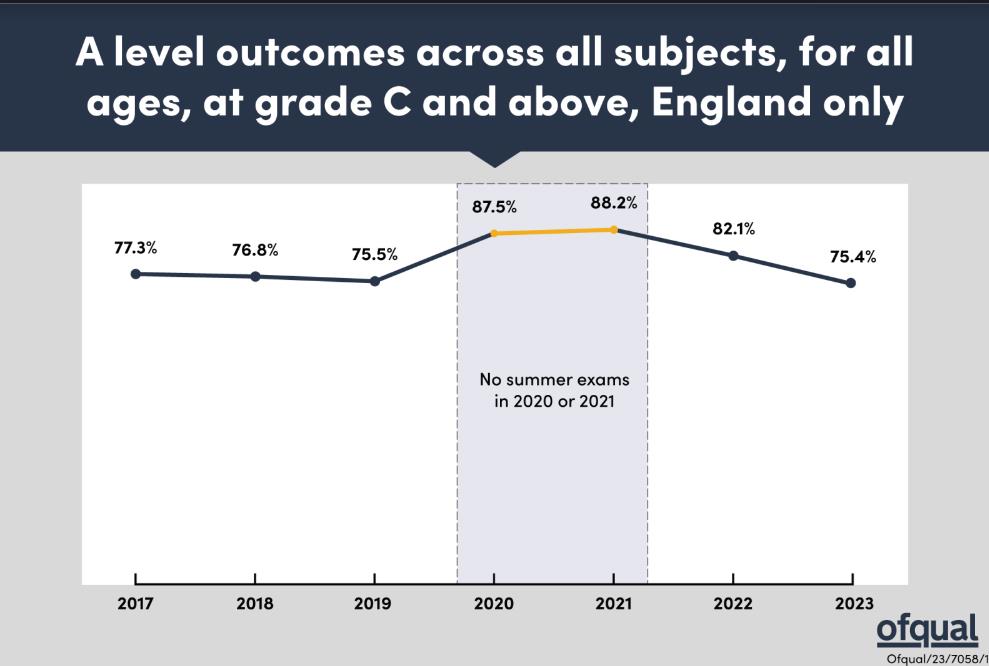
Pupils across the country are facing disappointing A-level results today, marking the worst performance in four years. As traditional exams were reintroduced and teacher assessments were abandoned due to the pandemic, marks have fallen back to 2019 levels. The number of entries awarded an A or A* has plunged by 9.2%, and the pass rate above an E has dipped to 97.3%. As a result, thousands of students are now scrambling to secure university places through the clearing process, after missing out on their top choices.
Key Points:
- The gap between richer and poorer students going to university has slightly widened
- The drop in grades is more significant in England compared to Wales and Northern Ireland
- While international students have declined overall, China has seen the highest number of admissions
- Economics has surged in popularity, pushing Geography out of the top 10 A-Level subjects
- The UCAS website experienced technical issues, causing anxiety for students awaiting their results
- In London, 30% of results were A or A* compared to 22% in the North East
- 90.5% of T Level students achieved a pass or above in the second year of the technical qualification
The reduction in A-Level grades was a deliberate move by regulators, who believe that returning to 2019 standards is essential for employers to fairly compare student cohorts across different years. In 2020 and 2021, generous grades were awarded by teachers, resulting in one-fifth of papers being marked with an A*. This year, the 335,437 students receiving A-Level results achieved 8.9% A* entries, a decline from 14.6% in 2022 but higher than the 7.7% in 2019. Despite the decrease, 3,820 students in England alone obtained three A* grades, fewer than last year but more than before the pandemic.

For the first time in three years, boys have outperformed girls at the top grade, with a 9.1% A* rate compared to 8.8% among female students. Overall, 414,940 applicants have secured a place at university or college, representing a decrease of 2.6% compared to the same period last year, according to the university admissions service.
Challenges and Responses:
Geoff Barton, of the Association of School and College Leaders, acknowledged that these results would be disappointing for students. He stated that the adjustment back to pre-pandemic grading standards was necessary but would feel like a setback for many. Meanwhile, Education Secretary Gillian Keegan defended the decision, arguing that it was a matter of fairness and that A-level results would not hold great importance in the long term. Keegan emphasized the importance of focusing on achievements since school, such as work experience and university degrees or apprenticeships, in shaping future career prospects.

Did you miss our previous article...
https://trendinginthenews.com/uk-politics/trade-sec-kemi-badenoch-majority-of-brits-back-postbrexit-trade-deals






